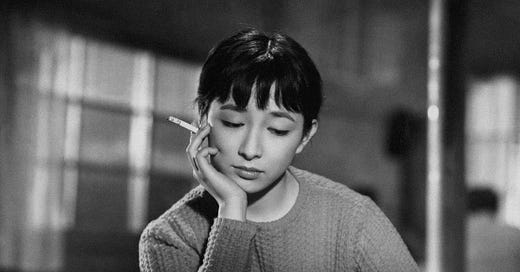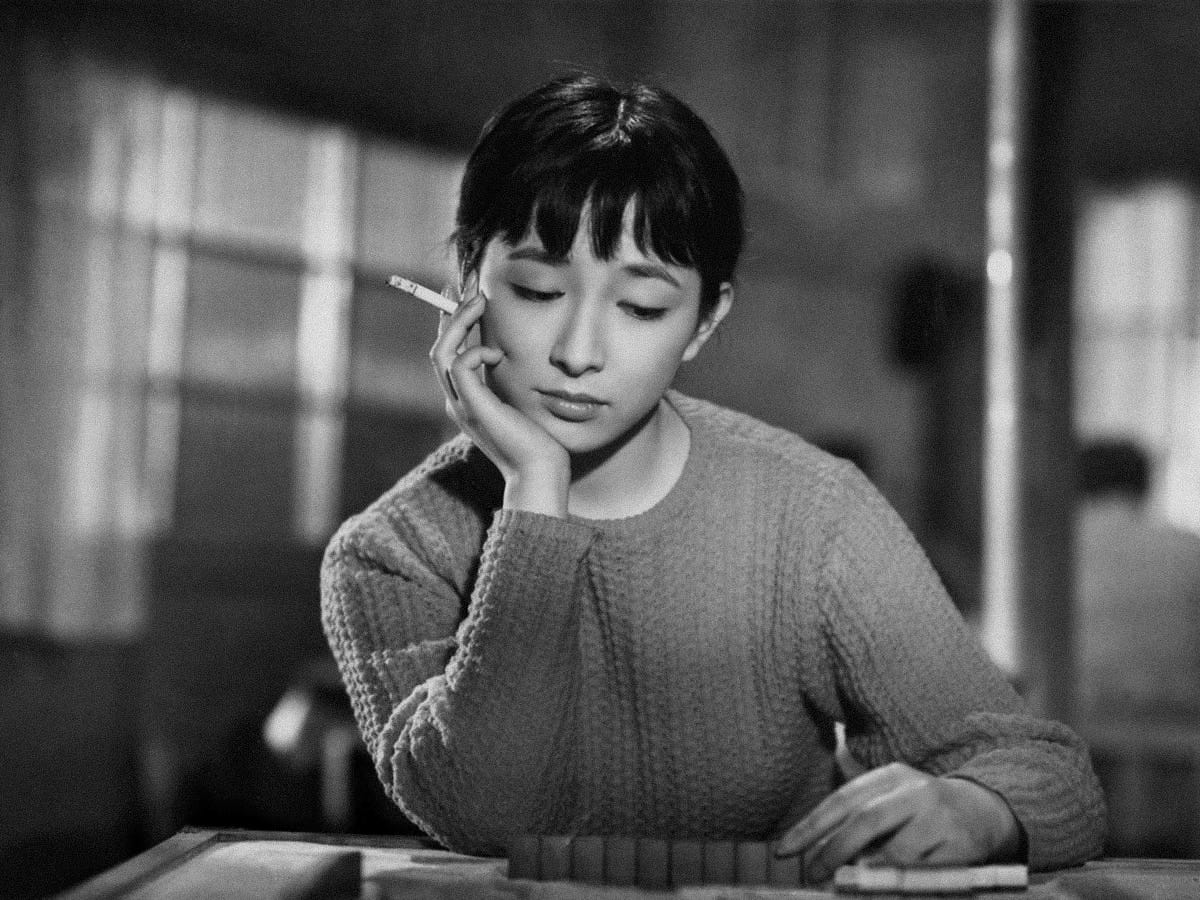Movie of the Week: TOKYO TWILIGHT (Yasujirō Ozu, 1957)
My favorite Ozu, and on some days my favorite movie
Ozu spent a portion of his silent period riffing on Hollywood genres, but his famed post-WWII output largely eschewed any kind of western influence both narratively and formally. So it’s easy to see the relatively unheralded Tokyo Twilight as a glaring exception: in terms of the basic events of the story, one wouldn’t hesitate to draw comparisons to the Hollywood melodramas of Douglas Sirk. Critics hastily dismissed the movie in 1957, claiming that we go to Ozu not for dark and gloomy tearjerkers, but for exquisitely restrained domestic dramas; they then filed the film under the category of misfire, where its reputation languished for many years. And yet, watching today, do we not feel that Tokyo Twilight does indeed contain that exquisite restraint, that gorgeously understated Ozu style, this time made ever clearer and more forceful by its interplay with an openly melodramatic story? I ask these questions because the movie hits me the way few movies do, and strikes me as one of the prolific director’s finest works. Tokyo Twilight has everything we look for in Ozu — Chishū Ryū as a conflicted patriarch, generational misunderstanding, tatami shots — but with a wintry darkness and stark emotionalism that both feel like thrilling new territory. The troubled sisters Takako (Setsuko Hara) and Akiko (Ineko Arima) are also two of Ozu’s most compulsively watchable characters. Akiko, donning a suitably Sirkian headscarf, slinks around the seedier bars and mahjong parlors of Tokyo, searching for something she’ll never quite find; the older and wiser Takako, on the other hand, bears the weight of the family’s troubles with every sinew of her body, and in the end can only resign herself — like so many others in the World of Ozu — to deep contemplation. There’s a devastatingly eloquent cut late in the film, from a train station to a kitchen, that should put to bed any notion that Tokyo Twilight’s unusually twisty narrative threw Ozu off his game. He’s ever present in this movie, operating at the very peak of his powers.
Stream on the Criterion Channel, Max, or Tubi.





